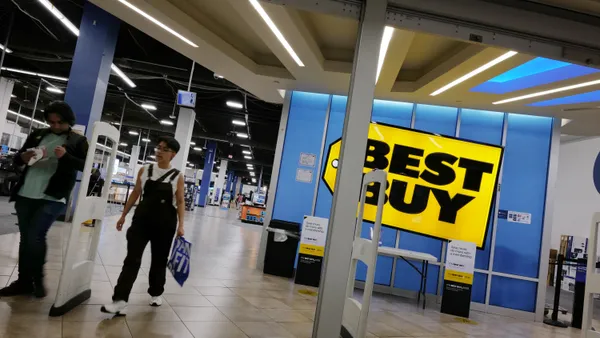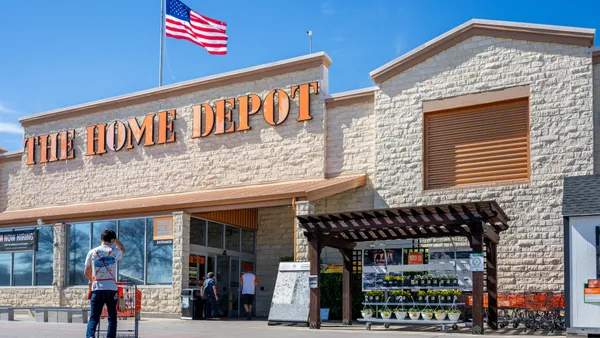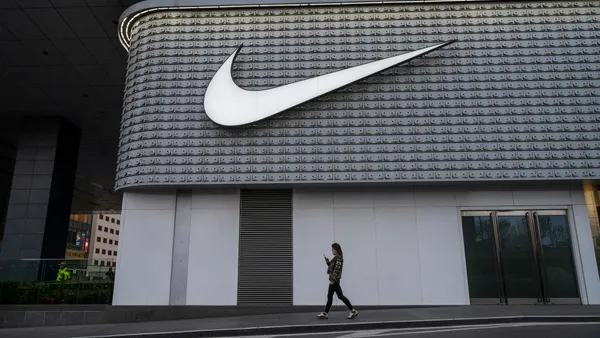Dive Brief:
-
Madison Reed, a direct-to-consumer hair color company, announced Tuesday its expansion into over 1,200 Ulta Beauty stores by the end of 2019, which is now the brand's exclusive wholesale partner both online and in stores.
-
Madison Reed has been available at certain Ulta stores and online since 2017, according to a press release emailed to Retail Dive. With the expansion, however, Ulta will carry all of the brand's products, including hair color kits, color reviving gloss, color protecting shampoo and conditioner, root touch up powder and hair color primer.
-
The partnership includes a chatbot named Madi, which gives customers hair color recommendations based on computer vision technology. Ulta shoppers can text a selfie to the chatbot, answer a few questions and receive recommendations for their ideal hair color shade, according to the release.
Dive Insight:
Ulta has been building a strategy around exclusive brand partnerships and product launches, specifically with digitally native brands. On the retailer's last earnings call, CEO Mary Dillon referenced Morphe and Kylie Cosmetics among those that have paid off for the retailer, not just in sales but also in store visits.
"Both brands drove very strong traffic in stores suggesting our guests are motivated to make more trips to the store to try these products in person," Dillon said at the time.
It's a similar play to what Target has done in scooping up direct-to-consumer brands, becoming somewhat of a go-to partner for digital natives like Casper, quip and Native. Target has placed less of an emphasis on exclusivity (for example, Native now sells at Walmart as well), but is nevertheless cultivating a name for itself as a brick-and-mortar partner for DTC brands.
Madison Reed is another such exclusive for Ulta, although the company has its own color bars as well — salons that use Madison Reed products and provide a physical experience for shoppers who want to get a service done. According to Madison Reed CEO and founder Amy Errett, the majority of the company's sales come from online, but its color bars come next in line, followed by wholesale.
That's part of the reason Madison Reed decided to make Ulta its exclusive wholesale partner, Errett told Retail Dive in an interview earlier this year.
"We've enjoyed the Ulta relationship, but we're not really looking at growing wholesale," she told Retail Dive. "I think across the board what most people have figured out is you've got to hit all these channels. So you can grow really fast through wholesale — like really fast — but at what margin? It's a completely different thing than my margin."
Errett said the brand had previously sold a root touch up product at Sephora, but never sold hair color there and ultimately settled on Ulta as a partner because of the larger emphasis it places on hair products. Both beauty players offer a high touch-and-feel environment, but Sephora's experiences tend to be more cosmetics-based, whereas Ulta offers salon services in stores, among other things.
"That's just not where someone would go to get their hair color," Errett said of Sephora, explaining the decision to focus on selling in Ulta. "Ulta has a salon in every Ulta. So hair has been very much what the company has started with and has flourished."
Correction: An earlier version of this story included an incorrect store count for Ulta. The retailer continues to open new stores and projects it will ultimately have over 1,200 by the end of 2019. At press time it did not yet have that many.













